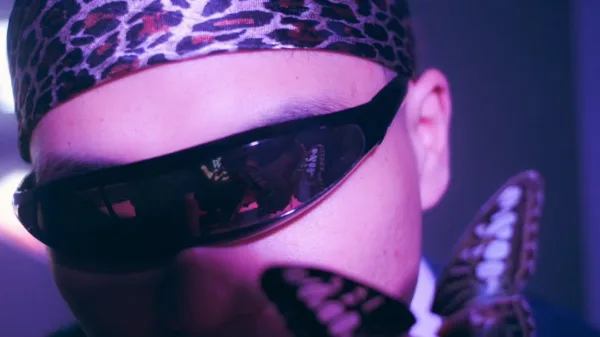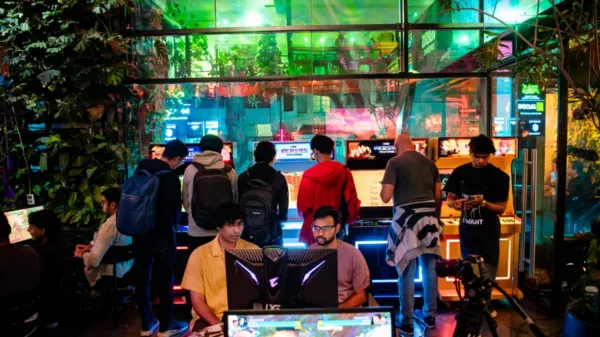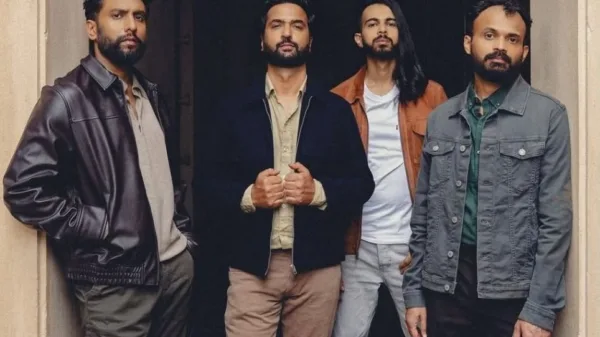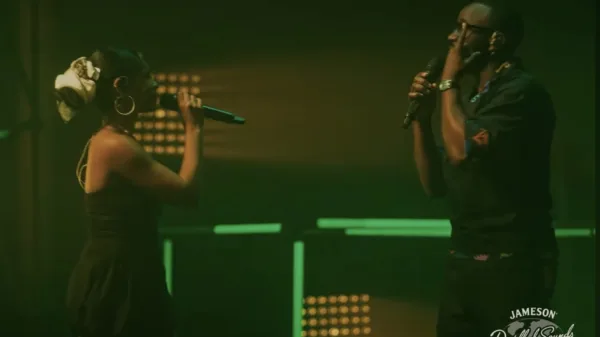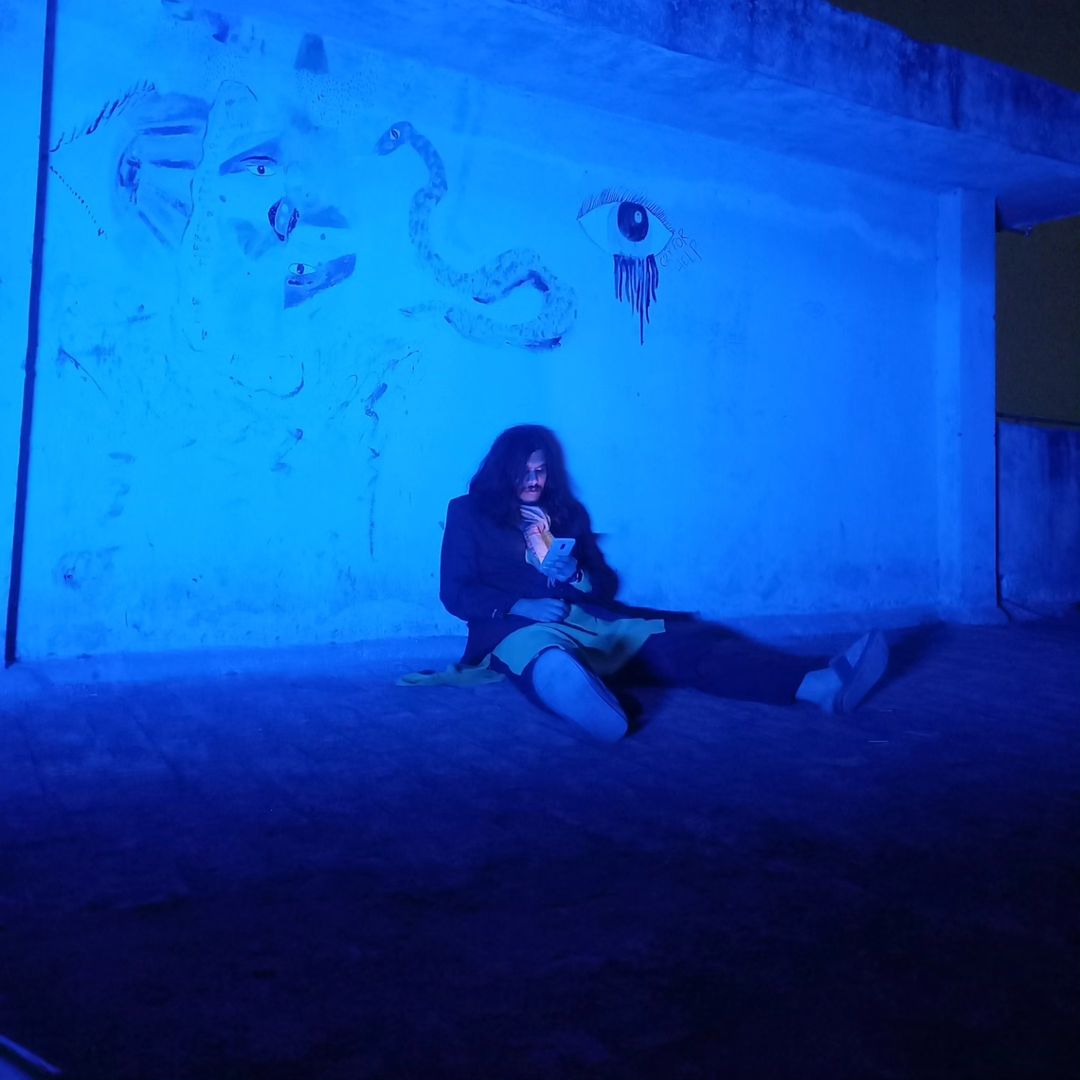A room on the roof with faded blue, red, green lights being reflected off your skin — the sensation of a dulled sense of what the word ultraviolet would feel like. Sitting on a Delhi pavement, watching intoxicated friends, feeling time pass fragment by fragment — like every little moment is leaving its knuckle-esque imprints on to your flesh as the streetlights become a part of your brain chemistry. Anger, mixed with grief, in sullen and simmering tones — sometimes personal, sometimes on larger questions of gender and violence. Tongue-in-cheek humor, paired up with innuendos you would exchange while seated on moth-eaten cushioned chairs at a residential colony function. There is a stunning visuality to the emotions that are drawn out by Darzi’s music. Yash Saxena, one of the now-burgeoning names in the Delhi indie music scene, calls his electronic music project (via Spotify) Darzi through which he “wants his expression to achieve purity, a mirroring of his [my] own quest as a human being trying to perfect himself.”

The artist has not been idle since his stunning 2022 album, Awaaz, that draws upon the lives of women, often lyrically relying on an assumed feminine perspective. He has just finished touring with musician B-Leaf, his frequent collaborator — where they have played 12 shows across 7 cities in the span of 3 months. He has also worked with other popular Delhi contemporaries Baijoo Bawra, shauharty, Haanikarak and Arpit Bala – the fruit of one these collaborations spawning the now near cult-classic status having track – Bhabhi Hunter. Darzi’s newest release, Kisko Disco is an EP composed of 4 songs : Sutli Baaje, Ilzaam, Bechainiyan and Kaante.

The production intersperses elements of Indian disco music with classic dream pop musicality. The EP is a synthesis of a varied set of influences — considering it is reminiscent of Bappi Lahiri’s work in the 80s, late stage Daft Punk, and bands like Pale Saints and Beach House. Every once in a while, we come across attempts from producers / artists who try to utilize “retro-sounding” soundscapes, sampling familiar loops, and then manage to work themselves into a corner where their own personality gets lost amidst the driving penchant for nostalgia. What is interesting about Darzi is the sensual and the suspenseful strike a wonderful balance in his songs — as he manages to retain his trademark lyricism, which do seem to be in the process of metamorphosing into something more defined into the future. The artist usually is a story-teller, with a distinct narrative going into his songs — for this EP, the lyrics seem more relaxed in their poetics, almost off of a mental diary of grief and desire.

Switching between moods, rhythm and pacing — while maintaining similar synthwork and drums, the listener can feel the artist let go of some of the pristine control you can feel in previous projects in terms of experimentation — especially in Sutli Baaje, which is perhaps the most upbeat on the whole EP, although it does have the tinges of melancholia / satirical acceptance typical of his usual work. The outro to Kaante is excellent in terms of it reflecting how much Darzi enjoys playing with vocal cadences, distortions, and loops.
However, the standout is perhaps Ilzaam. Accompanied with a music video that is exactly a visual representation of the kind of psychedelia one sonically would associate with the song, it is the one song that cuts a little deeper than the other numbers. The effect of intoxication that the song aims to create is complemented with the kind of attempt at tired coping/acceptance of things falling apart in the lyrics.
The EP has songs that could fit a Jaanbaaz reboot, or in a Clinton Cerejo-esque soundscape for mystery in the heart of a nighttime metropolis, like Te3n, or Kahaani. It also has the quality of a trailer for bigger things in the future — as the songwriter/producer relinquishes his control ever so gently, and excites listeners for what is to come in terms of widening boundaries and genuine experimentation.
















